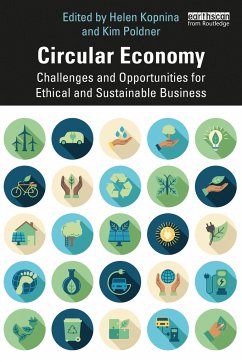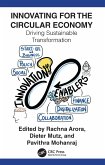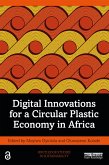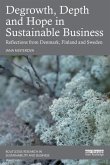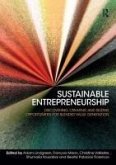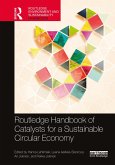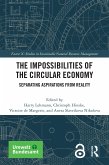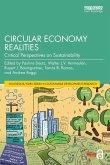How can we design circular business models? How can we organize the transition from a linear to a circular economy? And how can we imagine circular futures that help us transform current realities? This book aims to provide answers to these questions while addressing the challenges and opportunities of the circular economy.
The authors reflect on why conventional sustainability models - such as the 'triple P' (People, Profit and Planet) or eco-efficiency - have failed in addressing environmental challenges, including climate change, biodiversity loss and pollution. They then move on to explore innovative circular business models, which propose to eliminate environmental damage by radically reforming the system of industrial production. Organizing the transition is a collaborative effort: entrepreneurs, consumers, policymakers, multinationals and intermediaries need to work together to foster the emergence of the circular economy as an institutional field. Together with younger generations of learners and equipped with beyond-human-centred values towards awareness of the material and natural world, novel circular futures can be imagined.
Offering points of reference for continued critical discourse and examples of practically applicable sustainability solutions, this book will be of great interest to students, teachers, practitioners and scholars of circular economy.
The authors reflect on why conventional sustainability models - such as the 'triple P' (People, Profit and Planet) or eco-efficiency - have failed in addressing environmental challenges, including climate change, biodiversity loss and pollution. They then move on to explore innovative circular business models, which propose to eliminate environmental damage by radically reforming the system of industrial production. Organizing the transition is a collaborative effort: entrepreneurs, consumers, policymakers, multinationals and intermediaries need to work together to foster the emergence of the circular economy as an institutional field. Together with younger generations of learners and equipped with beyond-human-centred values towards awareness of the material and natural world, novel circular futures can be imagined.
Offering points of reference for continued critical discourse and examples of practically applicable sustainability solutions, this book will be of great interest to students, teachers, practitioners and scholars of circular economy.
'Transitioning from business-as-usual toward a circular economy is an absolute must to meet the urgent climate and environmental sustainability challenges of our time. Kopnina and Poldner bring together an inspiring array of researchers who dig into the topic of circular economy from a variety of angles. With ideas on how businesses can transform through innovation and design, and how education, consumers and intermediaries facilitate business model innovation, this book provides new insights into the scholarly business discourse on sustainability and management.'
Judith Walls, Professor and Chair for Sustainability Management at University of St. Gallen, Switzerland
'Sustainability is not only necessary, but as a matter of fact, possible. This book offers insights into ways to shape a sustainable future by opening up space for experimentation, multiple value creation and eventually transformation. Showcasing leading scholarship and practice on the circular economy, with coverage across a variety of sectors, cases and dilemmas, this book offers insights for forging new learning pathways towards the actualization of a sustainable world.'
William B. Gartner, Bertarelli Foundation Distinguished Professor of Family Entrepreneurship, Babson College, USA
Judith Walls, Professor and Chair for Sustainability Management at University of St. Gallen, Switzerland
'Sustainability is not only necessary, but as a matter of fact, possible. This book offers insights into ways to shape a sustainable future by opening up space for experimentation, multiple value creation and eventually transformation. Showcasing leading scholarship and practice on the circular economy, with coverage across a variety of sectors, cases and dilemmas, this book offers insights for forging new learning pathways towards the actualization of a sustainable world.'
William B. Gartner, Bertarelli Foundation Distinguished Professor of Family Entrepreneurship, Babson College, USA

